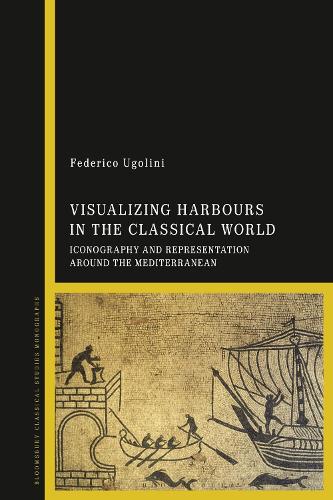
Visualizing Harbours in the Classical World: Iconography and Representation around the Mediterranean
(Paperback)
Publishing Details
Visualizing Harbours in the Classical World: Iconography and Representation around the Mediterranean
By (Author) Federico Ugolini
Bloomsbury Publishing PLC
Bloomsbury Academic
24th February 2022
United Kingdom
Classifications
Tertiary Education
Non Fiction
Hydraulic engineering
History of art
704.94938710937
Physical Properties
Paperback
248
Width 154mm, Height 232mm, Spine 16mm
380g
Description
In recent years, there has been intense debate about the reality behind the depiction of maritime cityscapes, especially harbours. Visualizing Harbours in the Classical World argues that the available textual and iconographic evidence supports the argument that these representations have a symbolic, rather than literal, meaning and message, and moreover that the traditional view, that all these media represent the reality of the contemporary cityscapes, is often unrealistic. Bridging the gap between archaeological sciences and the humanities, it ably integrates iconographic materials, epigraphic sources, history and archaeology, along with visual culture. Focusing on three main ancient ports Alexandria, Rome and Leptis Magna Federico Ugolini considers a range of issues around harbour iconography, from the triumphal imagery of monumental harbours and the symbolism of harbour images, their identification across the Mediterranean, and their symbolic, ideological and propagandistic messages, to the ways in which aspects of Imperial authority and control over the seas were expressed in the iconography of the Julio-Claudian, Trajan and Severii periods, how they reflected the repute, growth and power of the mercantile class during the Imperial era, and how the use of imagery reflected euergetism and paideia, which would inform the Roman audience about who had power over the sea.
Reviews
Ugolinis work remains a very well written, thoroughly researched and truly exciting study on the iconography of Hellenistic and Roman harbours in the Mediterranean. * International Journal of Nautical Archaeology *
Author Bio
Federico Ugolini is Postdoctoral Research Fellow at the Department of Maritime Civilizations, University of Haifa, Israel.
